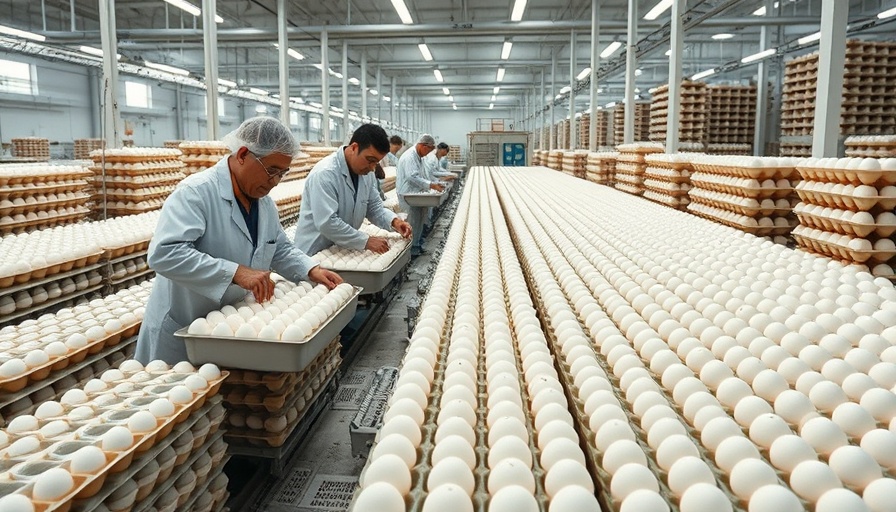
Egg Farmers at War: Battling Bird Flu While Facing Mounting Pressures
In a story that intertwines human emotion with agricultural calamity, Michigan’s egg producers, notably Herbruck's Poultry Ranch, are grappling with a relentless outbreak of Highly Pathogenic Avian Influenza (HPAI) H5N1. As one of the nation's leading suppliers of eggs, the ranch has seen firsthand the devastating toll of losing millions of birds to this virus—a loss that echoes deeply not just on the balance sheets, but within the lives of those who manage these farms.
The Emotional and Financial Toll on Egg Farmers
For Greg Herbruck, CEO of Herbruck's Poultry Ranch, the decision to cull 6.5 million birds is not merely a statistic; it represents profound emotional and psychological stress for him and his team. In interviews recounting this harrowing experience, Herbruck has mentioned the toll it takes on their mental health, describing moments where team members broke down in tears. The stark reality of animal husbandry, particularly during an epidemic, reveals the significant emotional burdens carried by farmers.
Historical Context: Lessons Unlearned from Past Outbreaks
The current HPAI crisis marks a departure from the strategies successfully implemented during the 2014-2015 outbreak, which was the largest of its kind in U.S. history. Agriculture experts agree that the protocols in place—predominantly the "stamping out" method involving immediate culling of infected flocks—are no longer sufficient by themselves to stem the tide of this persistent virus. In light of historical lessons, there is a growing clamor among farmers for more proactive measures, including potential vaccinations for poultry.
Risk of Human Health: A Growing Concern
As the bird flu spreads, the risk to human health naturally rises as well. Data indicates a significant uptick in cases, with 66 of the 68 total human cases reported since March 2024. In a climate of heightened awareness, public health experts like Dr. Nahid Bhadelia warn about the increasing likelihood of transmission to humans, especially considering the first human death linked to the outbreak was reported recently. The mounting cases signal the need for vigilance and perhaps reshaping how we address animal pandemics.
Investing in Biosecurity: A New Normal for Egg Producers
Farmers have poured millions into biosecurity measures over the last few years to prevent such outbreaks. At Herbruck's, employees are mandated to shower both at the start and end of shifts—a precaution aimed at halting the virus's spread. However, despite these significant investments, experts assert that measures implemented thus far have not been enough, calling for a reevaluation of strategies in light of changing virus dynamics.
The Path Forward: Innovations and Adaptations
As industry leaders confront unprecedented challenges, innovation comes into play. Advocacy for vaccination is gaining traction among farmers, as many believe it may mitigate future outbreaks and alleviate the ongoing crisis. Understanding our vulnerabilities and addressing them through technological advancements could play a crucial role in safeguarding both poultry and humans from avian influenza.
Community and Industry Response: A Call for Unity
The heartbreaking tales from the egg producers are not just isolated incidents; they reflect a larger narrative within the agricultural community. Farmers are calling for more significant support from local governments and industry alliances to combat the spread of this virus. A united front could potentially pave the way for shared research, resource allocations, and innovative breakthroughs that will ultimately benefit producers and consumers alike.
 Add Row
Add Row  Add
Add 




 Add Row
Add Row  Add
Add 

Write A Comment